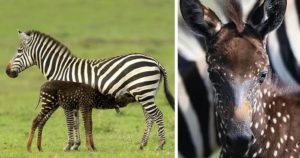
Extremely Rare Baby Zebra Is Born With Polka Dots Instead Of Stripes
A rare polka dot baby zebra was spotted in Kenya and the internet is falling in love with the amazing animal!
The animal was spotted (pun intended) in the Maasai Mara National Reserve in Kenya, where photographers took amazing pictures of the animal and shared it with the internet.
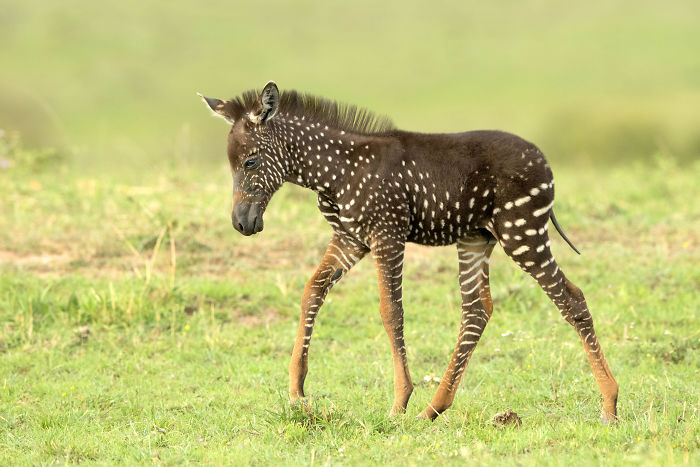
Since the pictures were posted, the animal has received a lot of love and has captured the hearts of thousands of people.
Zebras are white and they have black stripes or vice versa, but this little creature is black and has white polka dots all over its body.
The rare zebra was seen by Rahul Sachdev and Antony Tira, who are both photographers and tour guides, at the Maasai Mara National Reserve in Kenya.
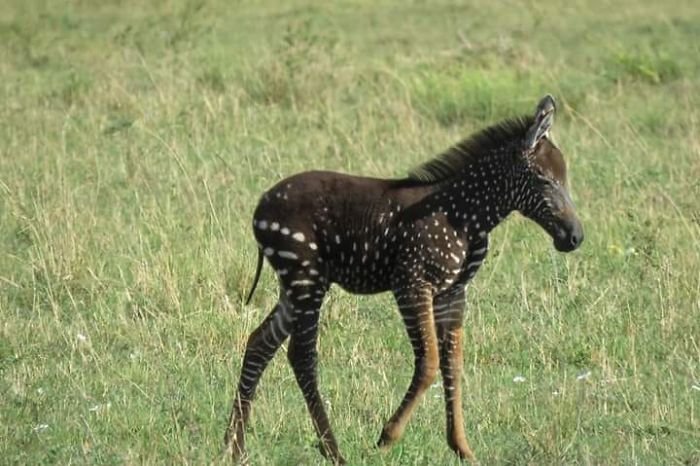
This is the first known case of a polka dot zebra at the Maasai Mara National Reserve in Kenya.
According to Parmale Lemein, a wildlife specialist, confirmed this is the first-ever case.
Parmale, who works with the Matira Bush Camp, said the baby zebra probably has melanism, which is the opposite of albinism.
One bad thing about this extremely rare animal is that Polka Dot Zebras that have melanism only survive for 6 months in parks in South Africa.
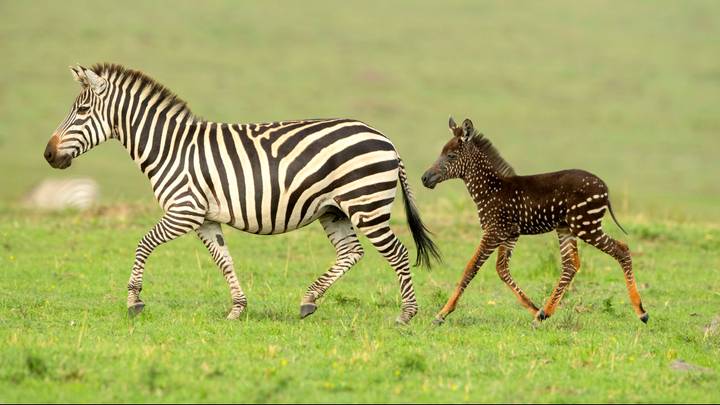
Ren Larison, a biologist that studies the evolution of zebra stripes at the University of California, said that predators target animals that look different than others.
This makes the rare zebra a target for animals such as lions, tigers, leopards, cheetahs, hyenas, and more.
Ren said, “Research on other species has shown that, while it is harder for a predator to target an individual in a group, it is easier if an individual is different.”
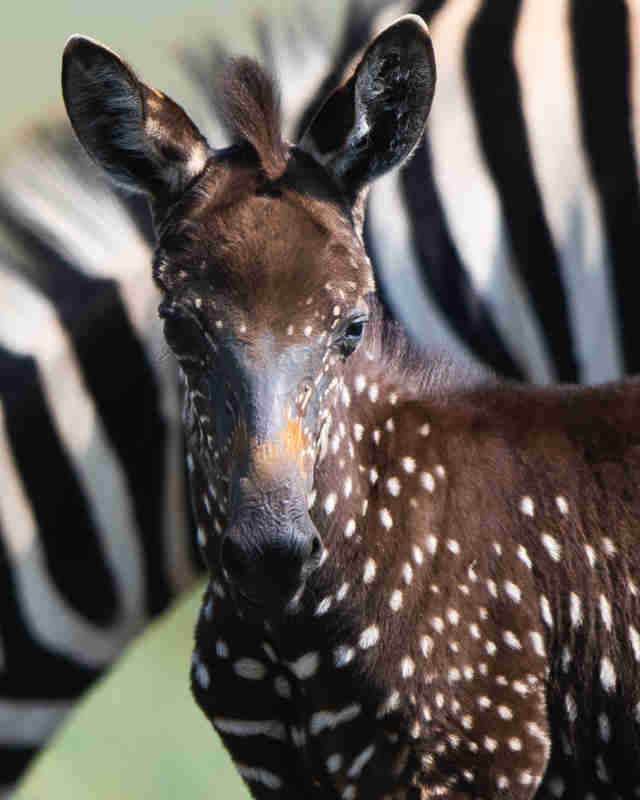
Zebra stripes from when there is an inhabitation in melanin production, this means that the animal is most likely black with white stripes.
The stripes of zebras actually help the animals survive through the scorching heat in Africa. It is said that the stripes help animals stay cool and allows them to hide from predators.
It also helps them avoid getting bitten by flies that transmit diseases.